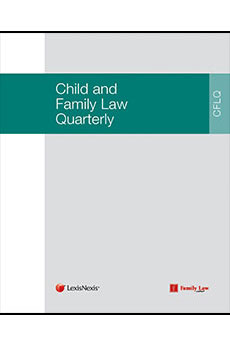Dr Dawn Watkins, Senior Lecturer in Law, University of LeicesterKeywords: Child - law - capabilities - Article 12 - UNCRC
This paper sets out the findings of a doctrinal study that has sought to establish a child’s ‘standing’ under English law, focussing primarily on children aged 7-11 years. It will demonstrate that the legal provisions that apply to children’s everyday lives are piecemeal and inconsistent, but more importantly, it will argue that even though the child possesses a broad range of rights under the UNCRC, he or she is much more clearly recognised and acknowledged as a wrongdoer than a ‘right-doer’ under English law. Following a close analysis of Article 12, the author goes on to discuss emerging scholarship concerning the capabilities approach and its relationship to children’s rights. This is then suggested as a possible basis for shifting our thinking and practice in this area; from a place that recognises children’s capacities not only as wrongdoers and as rights holders, but also increasingly as ‘potentially competent’ social actors and influencers.
This article was accepted for publication in Child and Family Law Quarterly
in Issue 1, 28, 2016. The final published version of this article is available below under a CC-BY-NC licence. 2016_01_CFLQ_025.pdf






